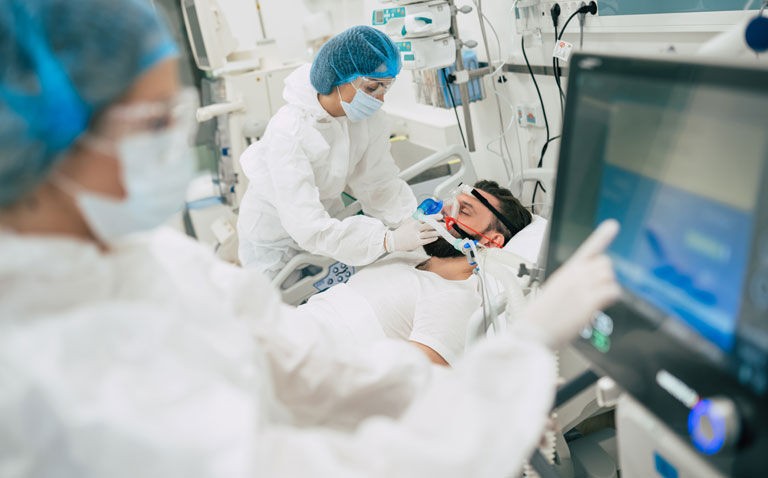COVID-19 inpatients failed to benefit from the use of colchicine or a combination of aspirin and rivaroxaban in comparison to usual care
Among COVID-19 inpatients, neither colchicine or a combination of aspirin and rivaroxaban provided any benefit in terms of the need for high flow oxygen, mechanical ventilation or death according to the findings of a study by researchers based at the Population Health Research Institute, Hamilton, Canada and presented at the ESC congress in Barcelona, Spain.
Colchicine which is largely used in the treatment of gout, interferes with several inflammatory pathways, including inhibition of neutrophil chemotaxis, adhesion, and mobilisation, disruption of superoxide production and inflammasome inhibition and has possible antiviral properties.
A further problem among hospitalised COVID-19 patients is hyper-coagulability accompanied by activation of blood coagulation, leading to a high risk of venous thromboembolism, especially among those admitted to an intensive care unit.
For the present trial, the Canadian team tested these two treatments: colchicine to target inflammation and the aspirin and rivaroxaban combination to target haemostatic activation. The overall aim was to prevent the need for increased respiratory support and death among COVID-19 inpatients.
The trial randomised COVID-19 inpatients to receive 28 days of treatment with: (1) colchicine (loading dose 1.2 mg, followed by 0.6 mg two hours later, then 0.6 mg twice daily for 28 days) versus control and (2) rivaroxaban (2.5 mg twice daily) plus aspirin (100 mg once daily) versus control, using a factorial design.
Using this design, researchers were able to simultaneously evaluate the independent effects of colchicine and the aspirin-rivaroxaban strategy and any possible additive effects.
The team set the main outcome for the comparison between colchicine and control as the need for high flow oxygen, mechanical ventilation or death. In contrast, for the aspirin-rivaroxaban combination, the outcome was major thrombosis, need for high flow oxygen, mechanical ventilation or death.
COVID-19 inpatients and treatment outcomes
The trial randomised 2,611 to colchicine versus control and 2,119 to rivaroxaban plus aspirin versus control.
Colchicine compared with control did not significantly reduce high flow oxygen, mechanical ventilation or death (28.2% vs. 27.2% events) giving a hazard ratio, HR of 1.04 (95% CI 0.90 – 1.28, p = 0.578).
Similarly, the combination of aspirin and rivaroxaban versus control did not significantly reduce major thrombosis, the need for high flow oxygen, mechanical ventilation or death (26.4% vs. 28.4% events), HR = 0.92 (95% CI 0.78 – 1.09, p = 0.324).
There was no evidence of benefit of either treatment in any of the major subgroups examined including the need for oxygen at baseline, admission to the intensive care unit at randomisation, COVID-19 vaccination status or time from COVID-19 symptom onset to randomisation.
The team also performed an updated meta-analysis of randomised trials of intensified anticoagulation versus control. Among 7,503 patients, intensified anticoagulation compared with control reduced venous thromboembolism by about one-half, whereas among 7,640 patients intensified anticoagulation compared with control did not reduce mortality.
There was statistical evidence of heterogeneity for the outcome of mortality which was driven by two smaller trials that suggested implausibly large reductions in mortality (46 – 77% relative risk reductions).
Lead author Dr Sanjit Jolly said: ‘The ineffectiveness of colchicine contrasts with a clear benefit of glucocorticoids, and raises several possibilities: concomitant use glucocorticoids negated any benefit of colchicine, colchicine is not sufficiently potent to suppress inflammation, or activation of the NLRP3 inflammasome does not play a major causal role in COVID-19 disease progression.’
They added: ‘The low rate of major thrombosis in the control group (<2%) suggests thrombosis is less of a problem than originally thought and that the lack of mortality benefit suggests that venous thromboembolism does not substantially contribute to mortality in hospitalised COVID-19 patients.’










